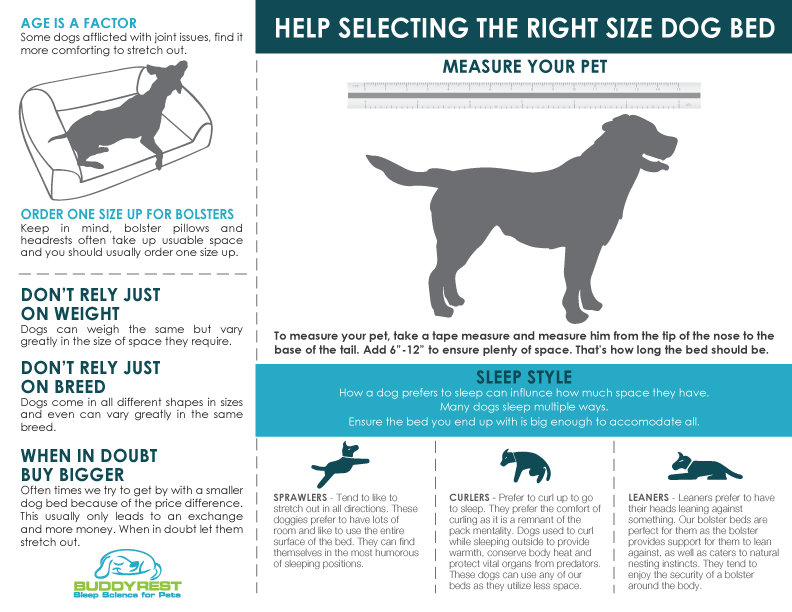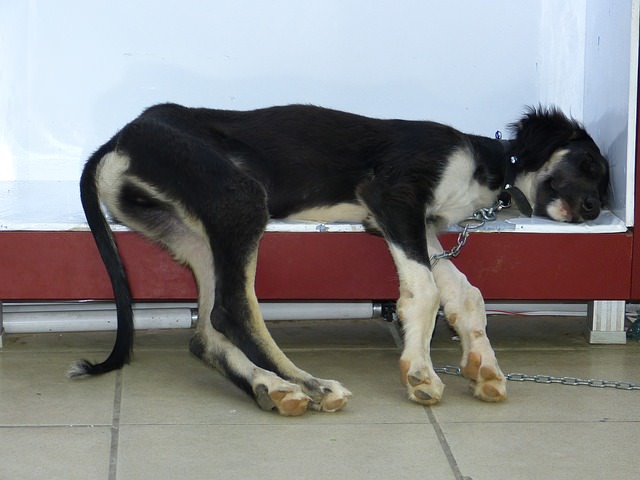Imagine you’re a dog owner, and you’ve always wondered whether your furry friend would prefer a big, spacious bed or a small, cozy one. Well, you’re not alone! Many pet owners have pondered this question. In this article, we explore the fascinating topic of dog bed preferences. You’ll discover some surprising insights into what dogs might actually prefer when it comes to the size of their beds. So, get ready to uncover the secrets of your canine companion’s sleeping preferences!
Benefits of Big Beds for Dogs
Comfort and Space
When it comes to providing the ultimate comfort for your furry friend, bigger beds are the way to go. With more surface area, big beds allow your dog to stretch out and find the most comfortable position for a good night’s sleep. A spacious bed also prevents your dog from feeling cramped or confined, ensuring they can fully relax and unwind.
Suitable for Large Breeds
For owners of large breed dogs such as Great Danes, St. Bernards, or Mastiffs, big beds are an absolute necessity. These majestic creatures need ample space to stretch out their long limbs and fully rest their large bodies. Investing in a big bed designed specifically for larger breeds ensures that your dog’s size is accommodated, promoting their overall well-being and ensuring a good night’s sleep.
Ideal for Dogs with Joint or Muscle Problems
Just like humans, dogs can experience joint or muscle problems as they age or due to certain health conditions. Big beds provide the necessary support and cushioning for dogs with these issues. The extra padding and space alleviate pressure on their joints, helping to reduce pain and discomfort. Additionally, the softness of big beds can offer relief for dogs with arthritis or other mobility issues.
Benefits of Small Beds for Dogs
Coziness and Security
For small breed dogs, the coziness and security offered by small beds are unmatched. These mini-havens provide a snug and comforting space where your little companion can curl up and feel completely safe. The smaller size creates a den-like atmosphere, which mimics the warmth and security they would have felt in a den in the wild. This sense of security is particularly beneficial for dogs with anxiety or stress issues, as it can help them feel calmer and more at ease.
Suitable for Small Breeds
Small breed dogs, such as Chihuahuas, Pomeranians, or Yorkshire Terriers, have specific needs when it comes to their sleeping arrangements. While they may not require as much space as their larger counterparts, small beds ensure that they have a cozy and fitting spot to rest and rejuvenate. The size of the bed matches their petite frames, providing them with the necessary support and comfort.
Good for Dogs with Anxiety or Stress
Many dogs, regardless of size, may experience anxiety or stress in various situations. Small beds create a sense of security and enclosure, which can be soothing for dogs experiencing these emotions. The smaller space promotes a feeling of safety and reduces their exposure to external stimuli, aiding in relaxation and reducing anxiety levels.
Factors to Consider
Size and Breed
When deciding between a big or small bed for your dog, considering their size and breed is crucial. As mentioned earlier, large breed dogs require big beds to comfortably accommodate their size. On the other hand, small breed dogs need beds specially designed for their petite frames. For medium-sized dogs, it often comes down to individual preference – some may feel more comfortable in a small bed, while others may prefer the extra space of a big bed.
Age and Health
The age and health of your dog also play a significant role in determining the type of bed they need. Puppies, for example, benefit from cozy beds that provide boundaries, mimicking the warmth and safety they felt with their littermates. Senior dogs, on the other hand, may require orthopedic or memory foam beds to support their aging joints and alleviate any discomfort. If your dog has specific health conditions, customized beds may be necessary to address their unique needs.
Sleeping Preferences
Understanding your dog’s sleeping preferences can help you make the right decision regarding their bed. Some dogs are “stretchers” who prefer to sprawl out and occupy as much space as possible. For these dogs, big beds are ideal. Other dogs are “curlers” who like to tuck themselves into a ball when they sleep. For these dogs, small beds that provide a cozy space are the perfect fit. Observing your dog’s sleeping habits and favorite positions can guide you in choosing the most suitable bed for their comfort and preferences.
Size and Breed
Big Dogs: Large Beds
For big dogs, there is no denying the importance of large beds. Breeds such as Golden Retrievers, German Shepherds, or Labrador Retrievers require beds that can accommodate their substantial size. Large beds provide ample surface area for these four-legged buddies to sprawl out comfortably, without feeling cramped or restricted. Investing in a bed designed for large breeds ensures that your big dog has the space they need to fully relax and rejuvenate.
Small Dogs: Small Beds
Small breed dogs, including Dachshunds, Pugs, or French Bulldogs, have different requirements when it comes to their beds. These pint-sized pups feel most at ease in smaller beds that cater to their petite frames. Small beds provide the necessary support and a snug space where these little companions can curl up and rest peacefully. It’s essential to choose a small bed that ensures their body is properly supported and that the materials are soft and comfortable.
Medium-Sized Dogs: Individual Preference
Medium-sized dogs, such as Cocker Spaniels, Beagles, or Border Collies, often fall somewhere in between when it comes to bed size. While they may not have the same room requirements as large breed dogs, they may benefit from a bit more space than what a small bed would offer. For medium-sized dogs, it often comes down to personal preference. Some may feel more secure and comfortable in a small bed, while others may enjoy the extra space and freedom of a big bed. Paying attention to your dog’s behavior and testing out different bed sizes can help you determine their individual preference.
Age and Health
Puppies: Cozy Beds with Boundaries
Puppies, with their boundless energy and tiny bodies, need beds that provide them with a sense of security resembling their early life with their littermates. Cozy beds with boundaries, such as donut-shaped beds or beds with raised sides, can make them feel protected and comforted. These types of beds allow puppies to curl up, mimicking the warmth and security they had when snuggled up with their littermates. The boundaries provided by these beds also prevent them from feeling overwhelmed in an overly spacious bed.
Senior Dogs: Orthopedic or Memory Foam Beds
As dogs age, they may develop age-related conditions such as arthritis or joint pain that require special attention. For senior dogs, orthopedic or memory foam beds are highly recommended. These beds provide optimum support, conforming to their shape and relieving pressure on their joints. The cushioning of these beds promotes better sleep quality and helps alleviate any discomfort or pain. Investing in a high-quality orthopedic or memory foam bed can greatly enhance the overall well-being of senior dogs.
Health Conditions: Customized Beds
If your dog has specific health conditions, it is essential to consider their unique needs when it comes to choosing a bed. Certain conditions, such as hip dysplasia or spinal problems, may require customized beds designed to provide extra support or accommodate particular positioning. Consulting with your veterinarian or a pet health professional can help you determine the best type of bed to address your dog’s specific health concerns. Customized beds may include features such as extra padding, raised sides, or even adjustable components to ensure your dog’s comfort and well-being.
Sleeping Preferences
Stretching Out vs. Curling Up
Just like humans, dogs have their own sleeping preferences. Some dogs, referred to as “stretchers,” love to stretch out and occupy as much space as possible. These dogs feel most comfortable when they can fully extend their legs and sprawl out in all directions. For stretchers, big beds are the obvious choice, providing them with the necessary space to indulge in their sleeping style. On the other hand, some dogs are “curlers” who prefer to tuck themselves into a ball when they sleep. For these dogs, smaller beds that provide a cozy and enclosed space are highly appreciated.
Preferred Sleeping Positions
Observing your dog’s preferred sleeping positions can offer valuable insights into their comfort and help guide you in choosing the right bed. Some dogs prefer to sleep on their back, exposing their belly to the world. These dogs may enjoy the freedom and space provided by a big bed. Others prefer to sleep on their side, curling up into a little ball. For dogs who prefer this sleeping position, a small bed that offers a snug and secure space is perfect. By understanding and considering your dog’s preferred sleeping positions, you can ensure that their bed caters to their comfort and provides the optimal sleeping experience.
Observing Your Dog’s Sleeping Habits
Taking note of your dog’s sleeping habits is essential in choosing the right bed. Pay attention to how they position themselves when they sleep, whether they prefer certain areas of the house, or if they like to sleep in different positions during the day and night. By observing and understanding their sleeping habits, you can gain valuable insights into their comfort and tailor their bed choice accordingly. What may be suitable for one dog may not be suitable for another based on their individual preferences.
Common Mistakes to Avoid
Choosing the Wrong Size
One common mistake that dog owners often make is choosing the wrong size bed for their furry friend. It’s crucial to accurately measure your dog to determine the appropriate bed size. Choosing a bed that is too small can lead to discomfort and make it challenging for your dog to get a good night’s sleep. On the other hand, a bed that is too big may be overwhelming and prevent your dog from feeling secure. Taking the time to measure your dog and selecting the appropriate bed size ensures their comfort and well-being.
Ignoring Your Dog’s Needs and Preferences
Another mistake to avoid is disregarding your dog’s individual needs and preferences when selecting a bed. Each dog is unique and may have specific requirements based on their size, breed, age, health, and comfort preferences. Ignoring these factors can result in a bed that does not meet their needs, leading to discomfort or dissatisfaction. By considering your dog’s needs and preferences, you can choose a bed that caters to their specific requirements and ensures their ultimate comfort.
Underestimating the Importance of Quality
Quality should never be compromised when it comes to choosing a bed for your beloved companion. Investing in a high-quality bed may have a higher upfront cost but provides numerous benefits in the long run. A durable and well-constructed bed ensures longevity, preventing the need for early replacements. High-quality materials also contribute to the overall comfort and support of the bed, enhancing your dog’s sleep quality. Don’t underestimate the importance of quality when selecting a bed for your dog.
Tips for Choosing the Right Bed
Measure Your Dog
Before purchasing a bed for your dog, it is crucial to measure them accurately. Measure their length from the tip of their nose to the base of their tail and their width from shoulder to shoulder. Use these measurements as a guide to determine the appropriate bed size for your furry friend. Remember to consider their preferred sleeping positions and any potential growth if they are still a puppy.
Consider the Sleeping Style
Take note of your dog’s sleeping style and preferred positions. If they are stretchers, look for a bed that provides ample space for them to fully extend their legs and sprawl out comfortably. If your dog is a curler, choose a bed with raised sides or a donut-shaped design to create a cozy and secure space for them to curl up. By considering their sleeping style, you can select a bed that caters to their comfort and ensures a restful sleep.
Evaluate the Material and Construction
The material and construction of the bed play a significant role in its comfort and durability. Look for beds made with high-quality materials that are soft, yet durable. Memory foam or orthopedic beds are excellent options for dogs with joint or muscle problems, providing optimum support and cushioning. Consider the bed’s washability, especially if your dog is prone to accidents or has a habit of getting dirty. A removable and machine-washable cover makes cleaning a breeze, ensuring a fresh and hygienic sleeping space for your dog.
Conclusion
Choosing the right bed for your dog is a vital decision that can greatly impact their comfort, well-being, and sleep quality. Big beds offer ample space and comfort, making them suitable for large breed dogs and those with joint or muscle problems. Small beds provide coziness and security, catering to small breed dogs and those with anxiety or stress. Factors such as size and breed, age and health, as well as your dog’s unique sleeping preferences, should all be carefully considered when selecting a bed. By avoiding common mistakes and following useful tips, you can make an informed decision and choose the perfect bed that will keep your furry friend happy, healthy, and well-rested.









